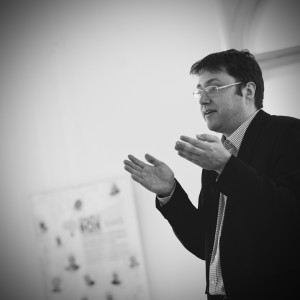Economic estimation of value of culture
Andrej Srakar | Faculty of Economics, University of Ljubljana
ekonomija
In the seminar, two main question will be addressed - firstly, methods to estimate economic effects of cultural events, which appear an extremely important and relevant topic in time of economic crisis and austerity measures, and yet, a decision of a proper method remains unresolved and open; all existing methods have been subject to severe criticisms in past years. We will therefore address the question by presenting a possibility of a new method, based on econometric analysis of secondary statistical data – a method being developed for purposes of estimation of economic effects of European Capital of Culture Maribor 2012.
Secondly, the question of the value of culture will be addressed. In cultural economics, value of culture usually consists of three components: economic use value, economic non-use values and cultural values. We will specifically address the non-use values, and will present results of a pioneering economic modeling experiment, done during author's past research in USA, which shows that non-use values can be appropriately labeled as »public values«, being able to valorize public-good dimensions of cultural events.
Andrej Srakar

His main research interests include cultural economics, mathematical economics, contract theory, public economics, macroeconomics and cultural policy. Srakar is the author of the first Slovenian monograph on cultural economics and has been the lead organiser and initiator of several pioneering events in cultural economics in Slovenia. He is actively involved in several research projects in cultural economics and contract theory and is currently finishing his PhD Dissertation under the mentorship of Prof. Michael Rushton from Indiana University Bloomington. In 2011/2012 he was Fulbright Scholar at Indiana University Bloomington. He has also been involved in several cultural policy projects in cooperation with Prof. Vesna Čopič.